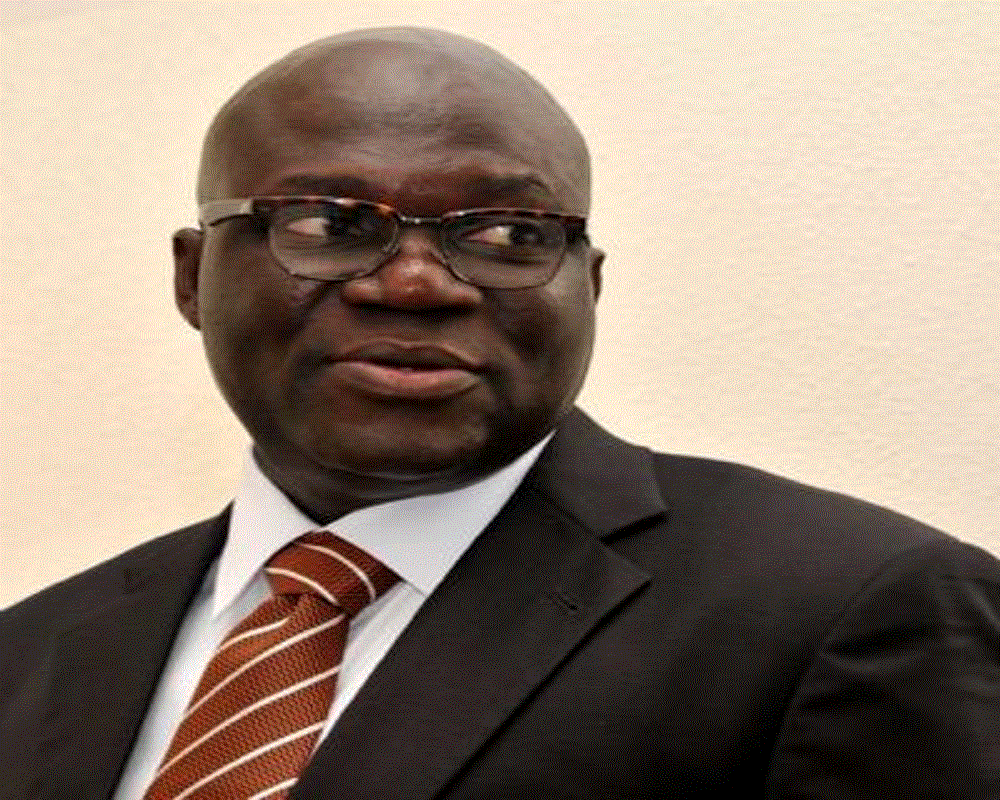Justice Ekwo Declaratory Judgment: Issues And Clarifications of Vacancy in Ebonyi Guber Seat
By Bridget Edokwe
The uproars generated by the judgement of Justice Ekwo in the removal of the embattled Dave Umahi and his deputy as the governor and deputy governor of Ebony State, are still rife both in legal and non-legal discussions.
While I make to say this analysis takes into cognisance of the lying appeal by Umahi and not to prejudice against it, I must also reiterate that though the judiciary can engage in Judicial Lawmaking to fill a gap when there is obvious lacunae, but like I have always been saying, the provisions of the Constitution some Acts of the National Assembly and case laws are very clear as to how cases of this like are heard and adjudicated; and I would take each argument one by one in the following paragraphs.
Many cited the section 308 for the 1999 Constitution (as amended) concerning restrictions on legal proceedings due to the immunity clause in it. But it may interest all to know that the subsection (1) of the section says “Notwithstanding anything to the contrary in this Constitution, but subject to subsection (2) of this section” and that the said subsection (2) says that “The provisions of subsection (1) of this section shall not apply to civil proceedings against a person to whom this section applies in his official capacity…” Umahi defected in his official capacity and so the provisions of section 308(1) shall not apply here.
I have also read some citing section 180 of the selfsame Constitution as regards when the tenure of office of a governor ceases. Again the provisions of subsection (1d) is very clear, it says “Subject to the provisions of this Constitution, a person shall hold the office of Governor of a State until he otherwise ceases to hold office in accordance with the provisions of this Constitution. Please know that jurisdiction of the Federal High Court under both federal and state judiciaries, Federal High Court Act etc are provisions of the constitution; and that a tenure of a governor can come to an end as a result of them.
Some also advanced the issue of jurisdiction of the Federal High Court citing section 251 of the Constitution. Please know that the opening paragraph of the subsection (1) of the section says “Notwithstanding anything to the contrary contained in this Constitution and in addition to such other jurisdiction as may be conferred upon it by an Act of the National Assembly, the Federal High Court shall have and exercise jurisdiction to the exclusion of any other court in civil causes and matters and the subsection (1s) says “such other jurisdiction civil or criminal and whether to the exclusion of any other court or not as may be conferred upon it by an Act of the National Assembly.
In the above regard, an Act of the National Assembly- the Federal High Court Act comes to play. Section 15 of the Federal High Court Act says “In any case where any person acts in an office in which he is not entitled to act, the Court may grant an injunction restraining him from so acting and may (if the case so requires) declare the office to be vacant”
The imports of the above are very clear that the Federal High Court does not only has jurisdiction to hear the case but that the Ebonyi State High Court which Umahi is relying upon does not have jurisdiction over the case.
Again on the issue of jurisdiction, it seems many are now not in tune with the First Alteration Act 2010 of the Constitution. The first alteration actually amended section 272 which is on jurisdiction of the state high courts and inserted subsection (3) which says “Subject to the provisions of section 251 and other provisions of this Constitution, the Federal High Court shall have jurisdiction to hear and determine the question as to whether the term of office of a member of the House of Assembly of a State, a Governor or Deputy Governor has ceased or become vacant.”
Like the preceding paragraph, the imports of this paragraph are also that the Federal High Court has jurisdiction to hear the case and that the Ebonyi State High Court which Umahi is relying upon does not have jurisdiction over it.
Many also have been hammering on the Supreme Court precedence on owner of votes garnered, per some rulings the votes belongs to the party and also by INEC Rules as guaranteed in the Constitution, the votes belongs to the party and instances are Yaya Bello of Kogi State, an Imo parliamentary contest and the recent FCT Area Council polls all of where the APC was declared winner by INEC with substituted candidate and without candidates until pronouncement of the Supreme Court.
Flowing from the above, it is safe to say the immunity clause did not stop civil suits concerning seat of governor of Ebonyi in official capacity as regards legality of such office, that the Federal High Court has jurisdiction whether office of a state governor has ceased or become vacant, and that Justice Ekwo and his declaratory judgement are in order to have declared the seat vacant, to have ordered INEC on non-recognition and PDP for replacement, as the Certificate of Return reading “Nweze David Umahi of Peoples Democratic Party (PDP)…” is no more valid by reason of defection which negates the “of” used in expressing the relationship between a part -Umahi and a whole -PDP the owner of the mandate.
It is also my advice that the governors of Zamfara and cross Rivers return to PDP because I am afraid both will be otherwising their survival in office if they remain in APC without any mandate. Justice Ekwo’s rulings are many times dangerous well-researched, perfect and hardly get turned down at appeals.
This landmark judgement will in no doubt reset the political space of Nigeria and a bit sanitize our democratic journey.



